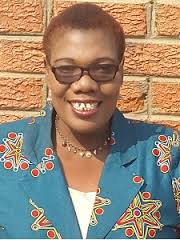By Byron Mutingwende
Sustainable development is development that meets the needs of the present without compromising the ability of future generations to meet their own needs it has emerged.
“Sustainable development calls for concerted efforts towards building an inclusive, sustainable and resilient future for the people and the planet. For sustainable development to be achieved, it is crucial to harmonise three core elements: economic growth, social inclusion and environmental protection. These elements are interconnected and are crucial for the well-being of individuals and societies,” said Dr. Tsitsi Chataika, the Coordinator of the Zimbabwe Disability Inclusive Forum.
Chataika made the remarks at a workshop organised by Sight-savers under the theme, “Leaving no one behind: SDGs and Inclusive Development” held at the Holiday Inn Hotel in Harare on 14 November 2016 that was meant to capacitate the media on reporting about SDGs.
Eradicating poverty in all its forms and dimensions is an indispensable requirement for sustainable development. Therefore, it encapsulates the promotion of inclusive and equitable economic growth, greater opportunities for all, reduction of inequalities, raising basic standards of living, equitable social development and inclusion, and the promotion of integrated and sustainable management of natural resources and ecosystems.
“According to the 2011 World Bank Report on Disability by the World Health Organisation, there are an estimated 1 billion persons with disabilities worldwide. The same report states that 1 in 5 of the world’s poorest people have disabilities. Disability is both a cause and consequence of poverty, yet international policy-makers and stakeholders have not historically recognised or prioritised this issue within international development efforts,” said Kudzai Shava, a Lecturer at the Reformed Church University and disability rights activist.
After three years of intense intergovernmental negotiations United Nations Member States adopted the 2030 Agenda for Sustainable Development in September 2015. The 2030 Agenda has 17 goals for sustainable development and 169 targets. There are 11 explicit references to persons with disabilities in the 2030 Agenda, and disaggregation of data by disability is a core principle.
It is hoped that the 2030 Agenda and the Sustainable Development Goals (SDG’S will influence the direction of global and national policies relating to sustainable development for the next 15 years. If the 2030 Agenda is going to be successful all of the UN Member States from 193 countries must include persons with disabilities in their national plans for implementation and monitoring.
The Rio +20 Outcome Document of 2012, “The future we want”, which is the basis for the inclusion of persons with disabilities in the SDG’S, has five specific references to disability, namely: responsibilities of States to respect, protect and promote human rights and fundamental freedom for all (paragraph 9); participation and access to information and judicial and administrative proceedings for promotion of sustainable development (paragraph 43); affirming that green economy policies in the context of sustainable development and poverty eradication should ”’enhance the welfare of persons with disabilities.
Shava added that the text of the 2030 Agenda and the Sustainable Development Goals (SDG’S can be interpreted through the lens of the UN Convention on the Rights of Persons with Disabilities (CRPD)
Zimbabwe has identified 10 out of the 17 SDG’S as specific priorities for the country over the next 15 years, and will undertake a ‘phased’ approach in their implementation as a mechanism to deal with current and anticipated resource constraints in the country, according to the Government. The prioritised SDG’S are as follows in order of importance: Goals 8; 7; 2; 9; 6; 13; 17; 3; 4; and 5. They cover decent work and economic growth, provision of affordable and clean energy, ending hunger, industry, innovation and infrastructure and sustainable management of water, combating climate change, global partnerships, promoting healthy lives and well-being for all, quality education and gender equality.
History is littered with horrendous and shocking stories of disabled people’s ill treatment and painful experiences of neglect, stigmatisation, discrimination, immense prejudice and extreme poverty all of which underpin and characterise their ‘social oppression’ in all societies across the world. They face daily struggles with accessibility and inclusion yet, inaccessibility and exclusion are not inherent aspects of disability, but rather, mechanisms of social organisation and structure which maintain a culturally transmitted negative perception of them. Their desire (as all other human beings) is to fully participate in ordinary activities of life such as working, playing, gaining education, striving for success, raising families, expressing their sexuality, involvement in community development and participation in larger social and political enterprises.
The Director of Policy Planning at the Ministry of Economic Planning and Investment Promotion, Grasiano Nyaguse said that the media play a central role in informing the public about what happens in the world, particularly in those areas in which audiences do not possess direct knowledge or experience.
The role of the media in the implementation of the SDG’S from the perspective of disability inclusion is multifaceted. There are however a number of things that the media should be aware of in order for them to effectively report on, as well as foster full understanding of the SDG’S among persons with disabilities, thereby ensuring ownership and promoting their participation in the implementation of the 2030 agenda.
This can be done through getting a clear understanding and perspective of what exactly disability rights entail; providing information and helping them make sense of the activities and programmes involved in the implementation of the SDG’S and the CRPD; and raising awareness on the SDG’S among the key players in SDG implementation.
